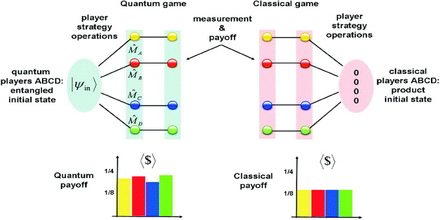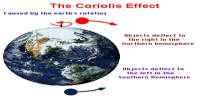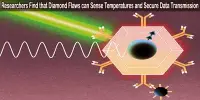Quantum game theory is usually an extension of time-honored game theory for the quantum domain. It differs from classical game theory in three primary methods: Superposed initial expresses, Quantum entanglement connected with initial states, Superposition of ways of be used around the initial states. Quantum game theory is dependent on the physics of information comparable to quantum computing.
Quantum Game Theory
















